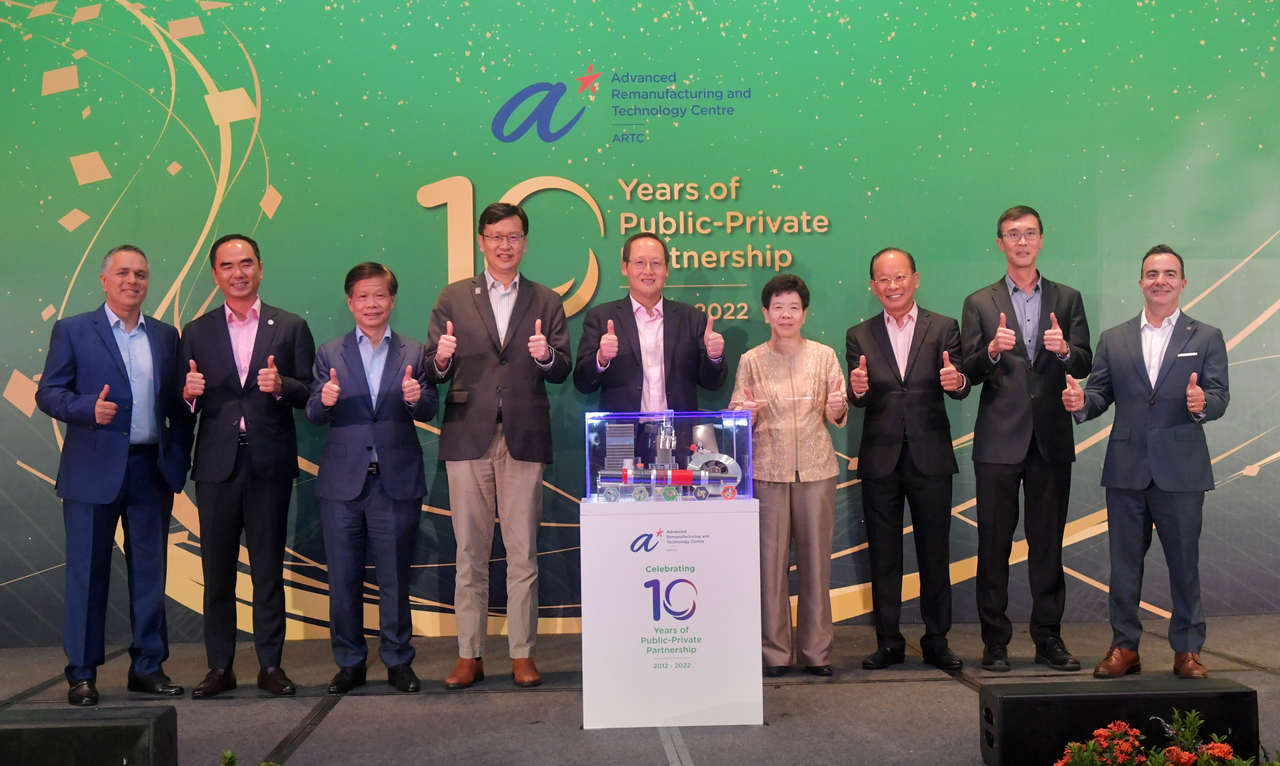A*Star research centre key to advanced manufacturing push: Tan See Leng
Sign up now: Get ST's newsletters delivered to your inbox

ARTC, which celebrated its 10th anniversary on Oct 5, is a key player in brokering vital public-private partnerships in the manufacturing sector.
ST PHOTO: ALPHONSUS CHERN
SINGAPORE - Home-grown industrial automation firm Sysmatic Global has about 30 employees now - a far cry from the two that it started with in 2010, co-founders Gavin New and Johnny Khoo.
Key to the plucky start-up's growth was a bold choice to take on work for aerospace engineering giant Rolls-Royce in 2012, initially providing design services before supplying them with an automated inspection system for aircraft parts three years later.
Mr New credits the Advanced Remanufacturing and Technology Centre (ARTC) for paving the way by guiding the firm to meet Rolls-Royce's strict requirements for a system that could inspect huge aircraft parts reliably - turning Rolls-Royce into a repeat customer to this day.
"I would say at least 50 per cent of the company's growth is down to the business that working together with ARTC helped us bring in," said Mr New.
Sysmatic Global is just one of 97 firms which work with ARTC, a research centre led by the Agency for Science, Technology and Research (A*Star), in partnership with Nanyang Technological University.
ARTC, which celebrated its 10th anniversary on Wednesday, is a key player in brokering vital public-private partnerships in the manufacturing sector.
Such partnerships are necessary if Singapore's companies are to move up the value chain into advanced manufacturing, said Second Minister for Trade and Industry Tan See Leng on Wednesday at a dinner at the Singapore Marriott Tang Plaza Hotel to mark the anniversary.
To be a global manufacturing hub, he said, the Republic's manufacturing sector must be able to translate breakthroughs in nascent fields like robotics and quantum computing to real industrial uses.
ARTC helps firms in its consortium, which come in all sizes, aggregate advanced manufacturing know-how, business opportunities, and technology from research institutes, public agencies and other firms.
Dr Tan, who is also Minister for Manpower, said: "This decade-long collaboration has accrued tremendous benefits for our companies and will continue to play an important role in the pursuit of our national priorities."
He said that transforming the manufacturing sector under Manufacturing 2030, a 10-year plan launched in 2021 to grow the manufacturing sector's contribution to gross domestic product by 50 per cent, or over $50 billion, is among the national priorities being furthered by ARTC's work.
Dr Tan said ARTC has helped companies in fields ranging from medical technology to fast-moving consumer goods, particularly in enabling products tailored to individual consumers to be made efficiently.
Public-private partnerships can also shore up firms in Singapore against supply chain shocks, help them become more sustainable and groom the manufacturing talent they need, said Dr Tan.
ARTC chief executive David Low told The Straits Times that unlike most research centres, which are researcher-led, ARTC is industry-led, applying the research in a commercially-viable way that meets the needs of promising manufacturing industries.
Among the 97 member firms, said Dr Low, are big multinational corporations that want solutions, solution providers who wish to showcase their technology and expertise on real projects, and small-and-medium-enterprises that are a mix of both.
But recent advances in manufacturing, such as artificial intelligence, which cut across sectors, have made the formation of public-private partnerships much more fluid since its beginnings with 12 members.
Likening the ARTC to a "swimming pool" that members can enjoy as they desire, he said: "Members could come in either as a technology provider or end-user... (or) learn from like-minded companies in other pillars."


